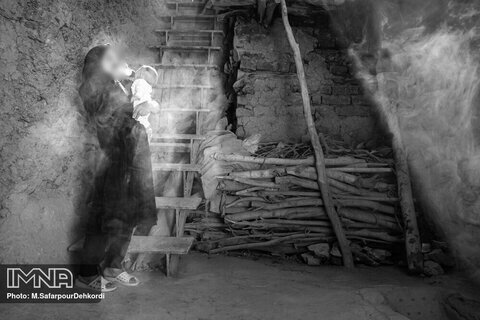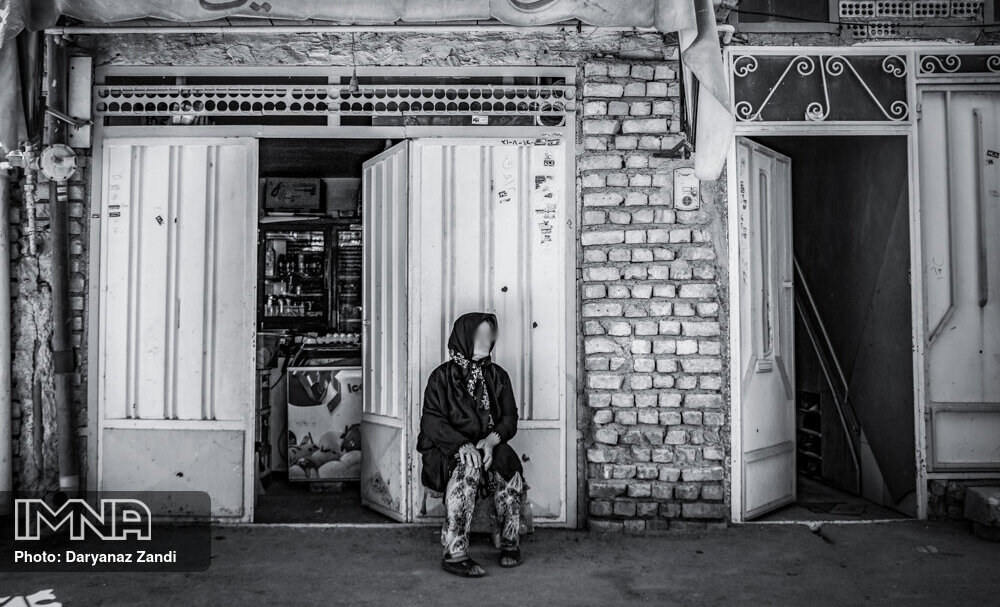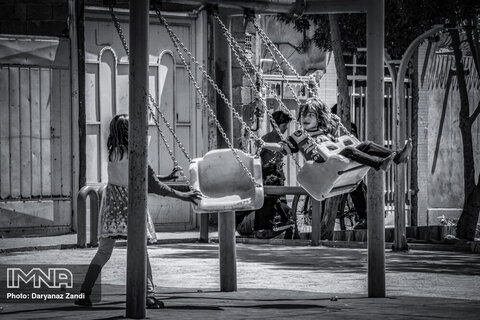Iran (IMNA) – Forced marriage and early motherhood reject the inalienable right of girls to choose with whom and when to get married and start a family; marriage is one of the vital decisions that should be made without any threat.
Young girls who are coerced into early marriage have their childhoods snatched away from them. They are often denied access to education and face a bleak future they are not physically and emotionally willing, which has a detrimental impact on their health and mental wellness.
Girls ensnared in early marriage are far more likely to be poor, unschooled, have drug-addicted parents, and live in areas with the wrong fanatical beliefs.
Under-age brides are more likely to experience early childbearing; this increases their risks of pregnancy complications, which can have lasting health effects, or even cause death.
"The social phenomenon of early marriage has been recognized as some sort of child abuse as young girls entered into a marriage without any life-skills training," Dr. Mahdiye Shademani, whose studies focus on women's and gender issues, told IMNA.
Early marriage is associated with a range of devastating consequences for child brides; girls who start a family before the age of 18 have a higher risk of maternal mortality, infant death, or pregnancy-related complications.
The babies of young married girls are at higher risk of being underweight and premature. They are also more likely to suffer from malnutrition and stunting throughout childhood.
"Pregnancy under the age of 18 carries extra health risks to the mother as her body is still growing, and pregnancy may lead to stunted growth," Farzaneh Zarean, obstetrician-gynecologist, said regarding the risks of teenage pregnancy.
"The possibility of preeclampsia and premature birth increases in teenage mothers. Pregnant teens need vitamins and minerals, especially calcium supplements. Bone accrual won’t be completed before age 18, so pregnant teenagers may suffer from osteoporosis," she added.
Child marriage considerably damages girls' social wellbeing, ending their education, putting them at risk of early pregnancy and its many complications, and increasing their risk of rape and gender-based violence, psychological trauma, and social alienation. It also entangles girls and their families in an intergenerational cycle of poverty.
"Suicidal ideation, prostitution, illicit relationships, and addiction are some of the social fallouts of early marriage that can destroy the future of a child," Amanollah Gharayi Moghadami, a sociologist, told IMNA on early marriage.
"In child marriage, more often than not, a younger girl is married to an older man." "It is a kind of sexual exploitation carried out as a substitute for money to offset debts; this is the worst type of psychological and sexual harassment imposed on girls," Gharayi Moghadami stressed.

Marring off young girls in Afghanistan
Iran’s neighboring country, Afghanistan, is suffering a shadowy situation regarding the violation of girls’ rights to marry.
According to a UNICEF statement released on November 12, 2021, 183 child marriages and 10 cases of child selling in Herat and Baghdis provinces were recorded by UNICEF's partners alone in 2018 and 2019. The children ranged in age from 6 months to 17 years.
As reported by UNICEF, 28% of Afghan women aged 15 to 49 were married prior to the age of 18.
The latest figure by a UK-based international non-governmental organization with the mission to end child marriage throughout the world indicated that 28% of Afghan females marry before the age of 18 and 4% marry before the age of 15. 7% of Afghan boys marry before the age of 18. Afghanistan has the world's 20th-largest absolute number of women married or in a marriage before the age of 18.
Iran is rarely the last destination for lonely refugee women who flee their country in hope of a better life; rather, most immigrants are single male laborers or families.
For Sanam, an Afghan girl living in one of Isfahan's deprived neighborhoods, the story is different; she ran off with her mother to Iran to escape a forced marriage.
"Fleeing from Afghanistan and illegal immigration to Iran was a troublesome experience for me and my mother. We were close to getting trapped by Pakistani human traffickers."
Sanam’s childhood ended way too early when her father decided to marry her off in exchange for money at the age of 10, when she lived with her family in Afghanistan’s Mazar-e-Sharif.
Her father forced Sanam to marry a boy who was an active member of a terrorist group. He was said to commit atrocious crimes against innocent Shia people and be involved in promoting violent extremism.
Sanam’s father was a dyer working on textiles. In the best-case scenario, her father earned about 4 U.S. dollars a day, and most days he returned home empty-handed. The family could only afford to eat small meals twice a day: tea and bread in the morning and, if possible, a hot meal in the evening. Their very thin faces, with very little flesh covering their bones, are irrefutable proof of their horrible past.
Sanam’s mother [Asiyeh] peeked at her daughter in a far corner of the playground and sighed, "Maher [Asiyeh’s husband] and my son had radical thoughts about women, and they admired the principles of ISIS, just like my dad, who was a big fan of Al-Qaeda. I didn’t want her to experience the hard life that I passed through—I mean the ill-treatment, torture, home captivity, and constant surveillance of my suspicious husband. The early marriage was not my primary concern, but their horrible lifestyle frightened me."

"I owe my life to my mother. She planned to leave that horrible life and save my future; however, the path of our immigration to Iran was not an easy one. We went through fire and water in the real sense," Sanam said.
Her mother broke in and continued, "When Maher received my disapproval regarding Sanam’s marriage, he beat me to death. The suitor threatened to abduct my daughter and hold her captive. So, I had no choice but to flee with Sanam."
Sanam let out a sigh. "The escape was like a real horror movie as we packed up everything in a suitcase and threw ourselves into danger."
"I had no money but some pieces of gold to pay for the dangerous escape. With the help of one of my friends, we slipped off to a region near Afghanistan- Pakistan border called Hamun-e Mashkil. The spot is the rendezvous of fugitives who are almost men."
Asiyeh went on to say that the terrifying part of the story was dealing with human smugglers to shuttle them out of the country.
"Traffickers are untrustworthy as they may trap refugees in a cycle of abuse and extortion." "For two days, I could not get into the faintest doze till we managed to escape from Afghanistan."
As soon as I set foot in Iran, I breathed again. This was the time to start a new life in hiding. I thought that I was relieved from all pains; however, being undocumented and helpless got us into trouble."
Asiyeh explained that they lived with one of her distant relatives for two years.
"I used to knit socks to earn a living, but I handed much of my income to Asad who had provided us with a shelter. He always threatened to rat me out to my husband, so I had to obey him.
"One day, a young man of 25 and his family came to our home to propose to me," Sanam said while shaking her head sorrowfully. "I wish I could go back and never have been married."
Asiye noted that the boy was Asad’s cousin, and she had to accept him as her son-in-law. Asad believed that having a single daughter at home was wrong and led to moral degeneracy.
"I bowed to fate. I ask my daughter whether she likes him or not. She was not yet old enough to discriminate between good and bad. The shadow of early marriage always follows us [Afghan girls]; this is written in our destiny." Sanam’s mother said it wearily. "2 weeks after the proposal, the wedding took place. It lasted no more than an hour."
"There wasn’t love or any feelings between us; however, I was thrilled about becoming a bride … the white dress and the ring especially," Sanam told IMNA.
"I thought I would have a nice life," she added. "Getting pregnant at the age of 12 is not what I expected; I want to go to school rather than prepare myself for motherhood."
Sanam is aching for the day when she will be able to continue her education and make her golden dream of becoming a teacher come true.
"The pregnancy has been a struggle for me so far—I suffer from malnutrition. I’m scared to give birth with much travail. My doctor asked me to take some drugs that make me feel more relaxed."
"When the baby is born, we will depart for Turkey and then head to Germany." "We can't stay for too long in Iran while being undocumented," Asiye continued.
"My husband just behaves like my father and my brother. He doesn’t allow me to participate in the literacy course. I will carry my wish to be a teacher to the grave," Sanam sighed out.
"If you know someone who has second-hand baby stuff, please let me know. We have to save money for our new chapter of life in Germany. I hope my baby is a boy. I don't want his or her fate to be like mine. Today’s world is a manly one." Sanam rose from the bench and ended the conversation.

The story of Sanam is not the first and won't be the last. The phenomenon of forced marriage is a worldwide issue that requires global attention.
Though child marriage in Afghanistan is not extensively recorded, with gaps in clear, comprehensive statistics on the number of children impacted, UNICEF has reported children being sold as early as 20 days old for future marriage, with girls disproportionately affected.
In Afghanistan, child marriage has long been an issue. However, recent reports indicate a rise in child marriages and sales, which may be a result of the worsening humanitarian catastrophe that has followed the Taliban takeover.
Afghanistan is not the only country that is confronting early marriage challenges, but it is the one that suffers the most due to the ignorance of policymakers and the inattention of global society.
International human rights organizations and anti-discrimination institutions should draw attention to ending child marriage through legislation across the world. There should be an international call for heavy sentences against contravention of the law and violence against women.
Informing and educating parents about the devastating consequences of early marriage can influence their false attitudes and beliefs. Some parents are not conscious of the disastrous sequel of forced marriage. Many of them marry off their daughters simply because early marriage is the only option they know of.
Setting a national policy for the integration of women in economic, social, cultural, and political development approaches would have positive outcomes. Providing employment opportunities for deprived families, especially in rural and distant areas, is a clever solution to reduce poverty and inequality.
Encouraging girls to attend school and empowering them will benefit entire communities. Creating strategic initiatives and launching programs promoting functional literacy will help people in developing countries understand the dangers of practicing wrong traditions like child marriage.
By Elahe Seyfodin


Your Comment